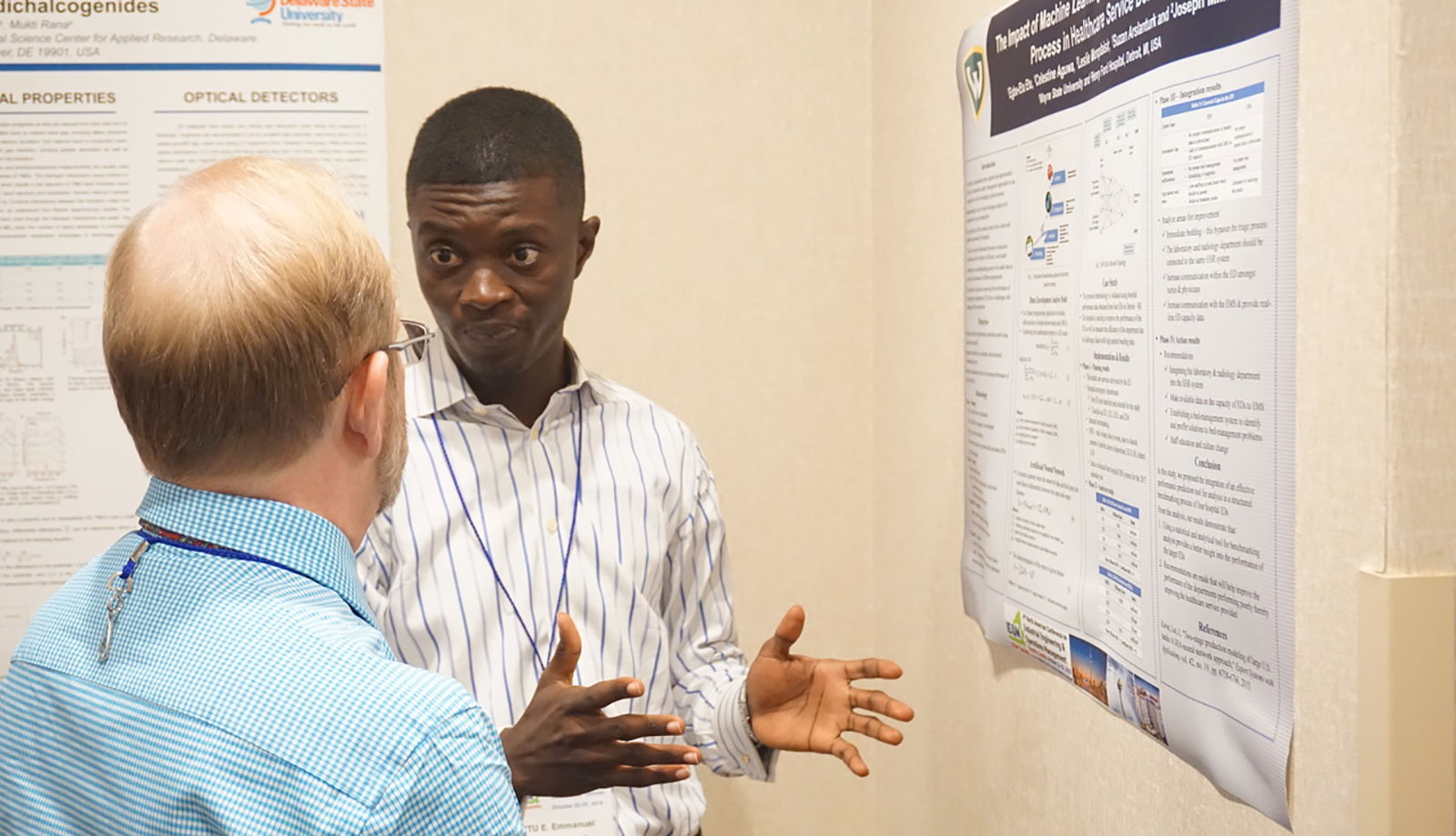Wayne State researchers awarded for data analysis project aiming to benefit hospital emergency department operations
A research team that included Egbe-Etu Emmanuel Etu, a Ph.D. candidate in the Department of Industrial and Systems Engineering at Wayne State University, and faculty advisors Celestine Aguwa, Leslie Monplaisir and Suzan Arslanturk was awarded first place in the graduate poster competition in October 2019 at the fourth North American Conference on Industrial Engineering and Operations Management (IEOM) in Toronto, Canada.
The project, titled "The Impact of Machine Learning Algorithms on Benchmarking Process in Healthcare Service Delivery," augmented a structured benchmarking model used by hospital administrators to measure emergency department performance and efficiency.
Congress enacted the Emergency Medical Treatment and Labor Act (EMTALA) in 1986 to ensure that anyone entering a hospital emergency department is stabilized or treated regardless of their insurance status or ability to pay. Costs required by EMTALA are not directly funded by the U.S. government and, according to a Definitive Healthcare study, total uncompensated care averaged $12.8 million in 2018.
"This has caused the emergency rooms to be stretched beyond their capacity which adversely affects the quality of care rendered to patients," said Etu.
Benchmarking allows a hospital to compare its metrics to industry standards in order to identify areas of strength or opportunities for improvement. It's a process that can be used to reduce expenses while improving services.

Using a standard four-phase - planning, analysis, integration and action - benchmarking model, Etu's study uses data envelopment analysis to estimate the efficiency of decision-making units (DMUs) as well as a back-propagation algorithm incorporated into the analysis phase as a performance prediction tool. Results from the study indicated that 50 percent of the DMUs operated efficiently.
"Implementing recommendations from the analysis can lead to increased quality of health care services provided to patients and increased efficiency in hospital operations," said Etu.
Also contributing to the project was Dr. Joseph Miller, an adjunct faculty member at Wayne State University and an emergency care physician at Henry Ford Hospital in Detroit.